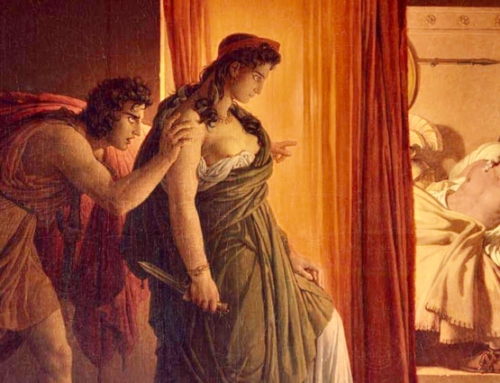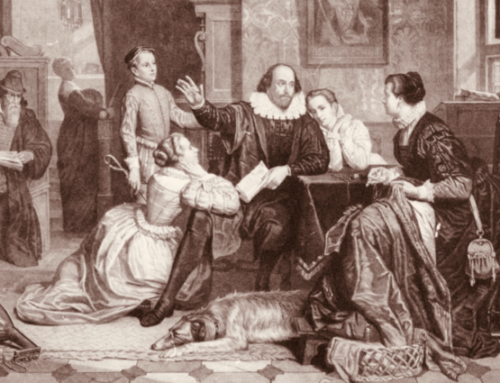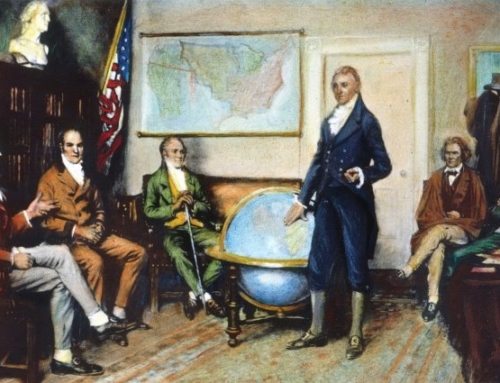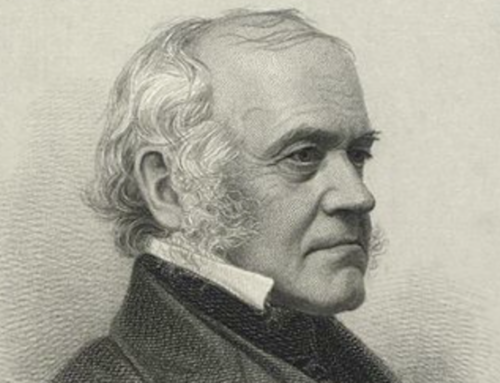Author’s Introduction: Imagine if Homer, Virgil, Dante, Chaucer, and the other great poets of ancient Greece, Rome, and the Middle Ages had been given the gift, not only to peer into the twenty-first century, but to correspond with us who live in that most confusing and rudderless of centuries. Had it been in their power to do both of those things, what might they say to us? How would they advise us to live our lives? What wisdom from their experience and from their timeless poems might they choose to pass down to us?
I’m glad to see that your age has not forgotten Rome. But please, children of the future, do not think that Rome was only a city or an empire or a people. She was also an idea, the noblest idea the world has ever known.
And behind that idea was a single word: pietas. Pietas means the duty one owes to the gods, the ancestors, the state, and the family. It is an orientation that places one’s own personal pleasures beneath the good of the whole. Rome held the bodies of men in fear through her military might, but she held their souls in awe through her pietas.
The gods chose my Aeneas to be the founder of Rome, for they saw that he had pietas, or at least that he could learn it as he journeyed along the weary road from Troy to Italy. Again and again, Aeneas was forced to give up his own desires so that Rome might be founded and bring peace and order to the world. First he lost his city, then his wife, then his father, then his lover, and finally his friend.
But that was still not enough. That he might have pietas engraved upon his heart, the gods led him into hades to meet with the shade of his father, Anchises. There Anchises laid out before the eyes of his son the coming march of Roman history that would lead, over the course of a thousand years, to the Roman Empire.
Please understand, my Aeneas did not want the job that was given to him. Every step along the way, he tried to stop and build his kingdom there. He was a Trojan and not a Roman. Indeed, if Aeneas could have had his way, he would have gladly died in Troy alongside Hector and Priam and his own dear wife.
But to die was not his calling. Oh, he would die eventually, as we all do, but before that, he had a mission to accomplish. For most people in my day and yours, pietas is oriented backward toward the founding vision of our ancestors. For Aeneas it was the opposite. He had to look forward to his heirs and act in the name of a future he could not see—although he was allowed to glimpse it in the depths of hades.
#
How does one attain pietas? By learning to take the long view of things. By recognizing that none of us lives or acts or dreams alone, but that our lives and actions and dreams serve a higher goal and purpose. We may not survive long enough to see that goal become a reality, but we will have played our role in bringing it about.
Let the barbarian live only for himself! The civilized man exists in a complex web of relationships to the past, the present, and the future. His life is not his own, but belongs to the gods, the ancestors, the state, the family. It belongs as well to the world.
When Aeneas met with Anchises in the underworld, his father left him with a challenge, a code that he must abide by if Rome were one day to step into her greatness and achieve her divinely-appointed mission. Put simply, Rome was to be the civilizer of the world, the one that would lay down laws and abide by them, that would mingle justice with mercy, that would establish the great and lasting peace of Caesar Augustus.
And she would do so by enacting one vital rule: to lift up the humble but battle down the proud. That would be her duty and her art, as I pray, dear citizens of the twenty- first century, it will be yours.
Power without mercy brings tyranny, while mercy without power quickly grows weak and ineffectual. But joined together by pietas, the two can bring order and virtue to a chaotic world of greed and pride.
There can be neither order nor virtue without solemn vows, oaths, and pacts, but none of those covenants can survive for long without pietas. When a man is bound by pietas, his word will be his pledge. He will act, not for personal profit alone, but with the full weight of tradition in his bones. In honoring the ancestors, he will be honoring himself, and in serving the greater good, he will be ensuring his own happiness.
#
Consider what my Aeneas did as he sailed across the Mediterranean in search of Italy. Though he did not know it, his greatest enemy, Ulysses, architect of that terrible Wooden Horse that brought about the downfall of Troy, was traveling through similar waters on his journey back to Ithaca.
As he came close to the dreadful island of the giant, man-eating Cyclopes, Aeneas spied a man in rags whose face was distorted with terror and despair. He was a member of Ulysses’ crew who had been left behind by accident when Ulysses made his escape.
My Aeneas would have been in his rights to kill this man for his association with Ulysses and the part he surely played in the Fall of Troy, but his pietas would not allow him to do so. Rather than kill him, he rescued the man from the island and brought him to a safe port. How shocked my Aeneas would have been had he learned that the man he saved was the sole member of Ulysses’ crew to survive the perils of the Mediterranean.
It may have been enough for Ulysses to get home at the expense of all his men, but not for a man like Aeneas, loyal to a sense of pietas that bound him, not only to those around him, but to those who would follow him in the fullness of time.
So next time you are debating an action, think of my Aeneas and the Rome that he founded. Remember that you do not live for yourselves but as part of a line of ancestors and heirs that depend on you and your decisions for their legacy and their life.
—Virgil
The Imaginative Conservative applies the principle of appreciation to the discussion of culture and politics as we approach dialogue with magnanimity rather than with mere civility. Will you help us remain a refreshing oasis in the increasingly contentious arena of modern discourse? Please consider donating now.
Editor’s Note: The featured image is “Fuga di Enea da Troia (Aeneas’ Flight from Troy)” (1598) by Federico Barocci (1535-1612), courtesy of Wikimedia Commons.








The perfect word is ‘continuum,’ of which each is indebted.